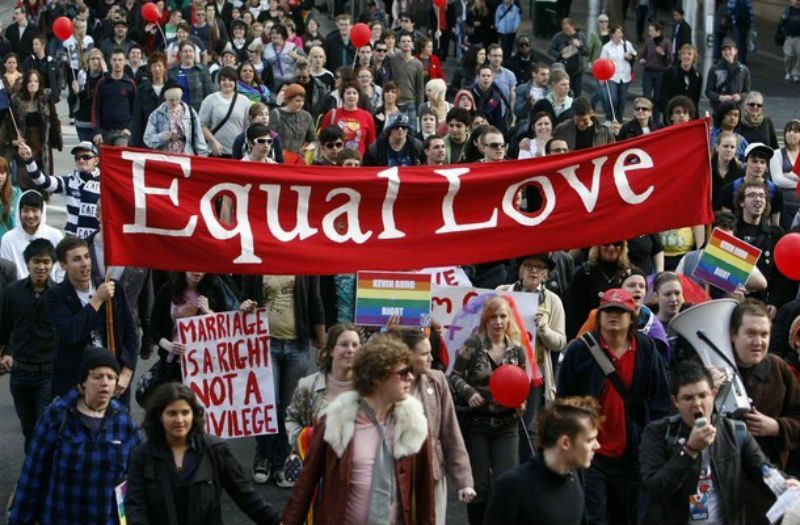 The great decision was too late…
The great decision was too late…
Where were you when you heard the news of the SCOTUS decision that made our marriages legal in all 50 states? I heard via email, and after a quick Google search, I saw Justice Kennedy’s written decision and a whole lot of celebration on Facebook and gay news sites. Everyone, it seems, is super happy and excited today. Love = love!
Yes but…for this long-lived lesbian, the joy is diluted by the long delay. I’d have been celebrating wildly if this change had come ten or even three years ago when I was in a long-term relationship with an Australian woman. We were together for fourteen years, almost all of them spent in Australia, because she couldn’t get more than a six-month visa to come to the USA, and she wasn’t allowed to work here.
I, on the other hand, moved to Australia and gained first a work visa and then full citizenship simply by virtue of being her partner. To make me a legal immigrant, we filled in the same forms and provided the same proofs as any international straight couple.
The whole time I lived in Australia, I felt torn. While Nicole loved Oz, and I loved living with her, and while we could afford a nice house and I had a great, challenging and lucrative job, back in the USA my parents kept getting older and my guilt towards them kept growing.
I missed my American friends, I missed getting mail on Saturdays, and I missed health-food supermarkets, but mostly I felt the need to be near my parents. When they reached their 90s, I moved back to the USA, to live near them.
I travelled between two countries for several years, with no job in either place. Nicole visited me here as often as she could, but with no ability to work here, and no permission to stay more than six months, she couldn’t make it her home.
For the entire time that we lived together, from 2000 to 2012, I worked to try to get the right to marry her. US immigration policies did not recognize same-sex couples. Even though we had a civil union in Vermont in 2000, it wasn’t recognized at a federal level. For immigration purposes, it was worthless, as useless as any other marriage from any other state or country.
I joined an activist group called Out4Immigration, which represented some 40,000 Americans with international partners. That tiny number – some 80,000 total – represented a micro-drop in the ocean of immigrants (some 12 million undocumented immigrants in the US at that time).
While the US considered granting amnesty to 6 million undocumented Mexicans, granting legal status even to people who had entered or stayed in the country illegally, we 40,000 mostly law-abiding gay couples could not get two words of legislation passed that would have legalized our families. We fought for years – letters, phone calls, faxes, videos, and personal visits to any legislators who would see us – to promote the UAFA – the Uniting Families Act – and the DREAM Act. We worked for more than a decade to get two words, “permanent partner ” into in the US Immigration and Nationality Act. It didn’t work.
I assume that the hundreds of people in Out4Immigration and the thousands in the Human Rights Campaign are celebrating today. I’m glad that so many American citizens now can bring their partners to their home countries, and won’t have to choose between their home and their partner. I’m glad that any adults who are in love in the USA can get married, and I’m glad that the arc of history has bent towards justice.
I’m glad that my current partner and I have more options for our relationship than we did yesterday, and I’m glad not just for every long-lived lesbian, but all queers, married or single or in-between, that we have more freedom and respect. Hell, I’m even glad for America. But for me and my ex-partner, the Australian woman I loved for 14 years, it’s too late.


